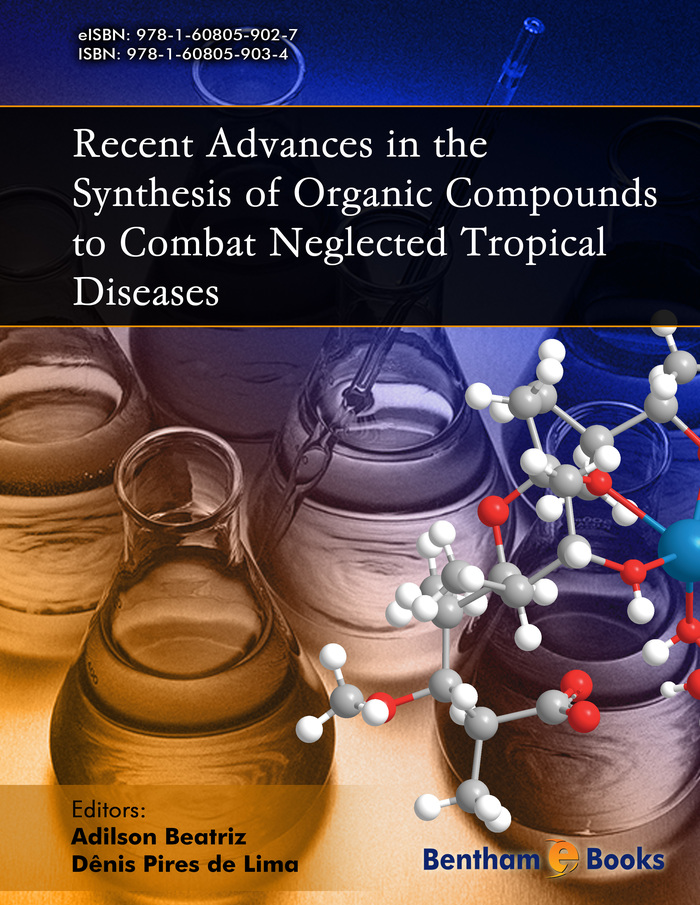Introduction
The World Health Organization (WHO) has reported 14 diseases that are occurring exclusively in tropical areas. Most of these diseases are infectious and mainly affect poor populations. Some of these diseases include malaria, dengue fever, leishmaniasis and Chagas disease. Therefore, an acute need for increasing the arsenal of drugs is required to fight against these neglected diseases for the guaranteed recovery and relief of many patients.
This E-book gathers important scientific research performed by scientists worldwide showing the state of the art of Medicinal Chemistry dedicated to the synthesis of compounds that are potentially bioactive against the causative agents of neglected diseases.
The contents of this book include chapters on recent advances in synthetic organic compounds for the prevention of Chagas disease, recent advances in the discovery of small organic molecules for the prevention and treatment of dengue fever, leishmaniasis, leprosy, therapeutic arsenal and drug discovery for lymphatic filariasis, therapeutic agents for the treatment of malaria, schistosomiasis and synthetic organic compounds as potential antitubercular drugs.
This book is intended for undergraduate and graduate students in institutes, colleges, universities and academies who want to specialize in the field of organic synthesis and medicinal chemistry. This book will also be a valuable resource of information for researchers in this field.

